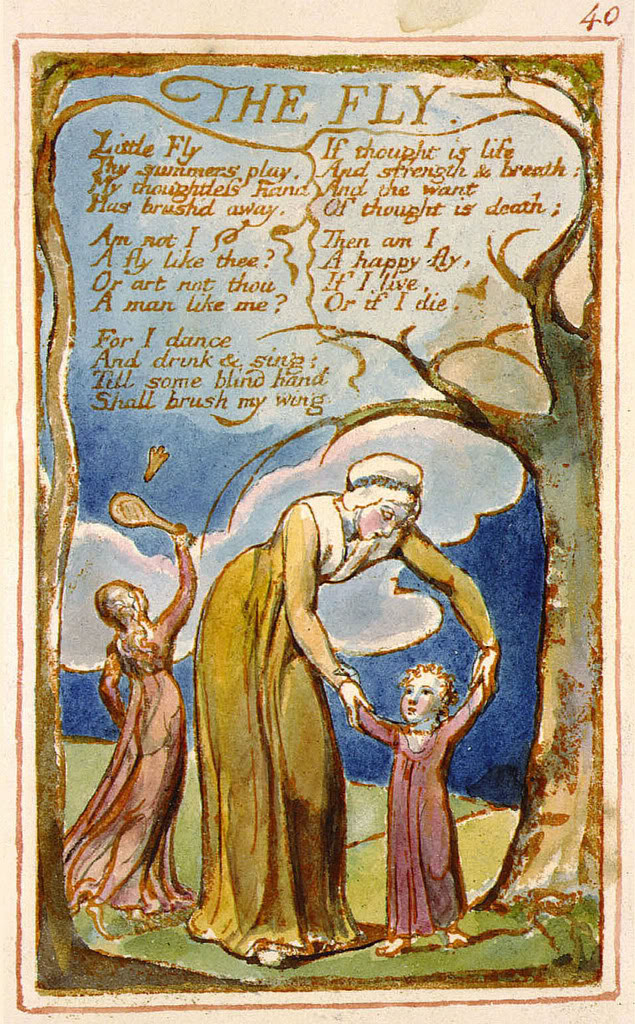There's an uncanny similarity between the culture Blake
was born into and the present: The majority culture was
radically materialistic, while an alternative (New Age) one
thrived, especially in religious circles.
Blake's parents may have been Swedenborgians; his mother had been a
Moravian during her first marriage; these two radically dissenting sects
had their due influence on the young Blake's religious outlook.
 |
| Wikimedia Commons Songs of Innocence Plate 40 |
Blake enjoyed a happy childhood, with remarkably liberal and permissive parents; he started school at the appropriate age, but his academic career was a short one: when the schoolmaster birched a fellow pupil, little William made a quick exit and never returned.
Like many such 'dropouts' Blake became an autodidact; he probably knew more than any person alive of the "perennial philosophy", the wisdom of the ages. It was a wisdom that
the materialistic culture had turned its back on with the excessive secularism of the Enlightenment.
In late 18th century England School was for the middle class, a station to which Blake always aspired. But outside the middle class boys were generally apprenticed; Blake became an apprentice to a well regarded engraver. Thereafter he made his primary income as an engraver; a great many of his poems were engraved as illuminated poetry, which Blake practically invented.
Husbands in general tend to be deeply influenced by
their wives, and Blake was no exception. He married an
illiterate woman, but she soon became literate; for 40
years Catherine Blake helped William with his creations and
gave him unlimited encouragement and emotional support.
Re intellectual influences the Bible was first and foremost;
it's hard to find a page of Blake's poetry without a
quotation or at least allusion to some biblical idea.
Second to the Bible is what I called above the 'perennial
philosophy', what Kathleen Raine called the 'canon of the
western esoteric tradition.' It includes an enormous variety
of written material. In a letter he wrote to John Flaxman
when he was 33 Blake only touched the surface:
"Now my lot in the Heavens is this; Milton lovd me in
childhood & shewd me his face Ezra came with Isaiah the
Prophet, but Shakespeare in riper years gave me his hand
Paracelsus & Behmen [Boehme] appeard to me. terrors
appeard in the Heavens above."
One might add Spencer, Dante, and a host of others. Blake
was an inveterate and omnivorous reader; you have to
wonder how he could have accessed all the stuff to which
he had obviously been exposed.
We all encounter influences, both positive and negative. The
primary negative influence Blake felt was the prevailing
materialism; he referred to it as Bacon, Newton and Locke.
.

No comments:
Post a Comment